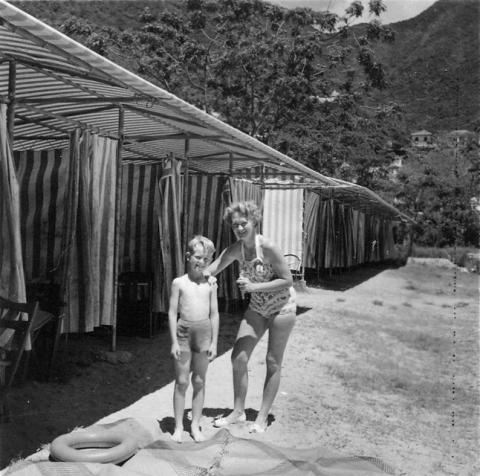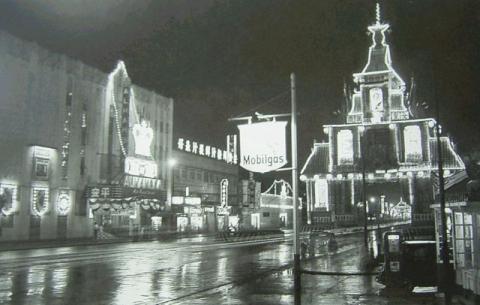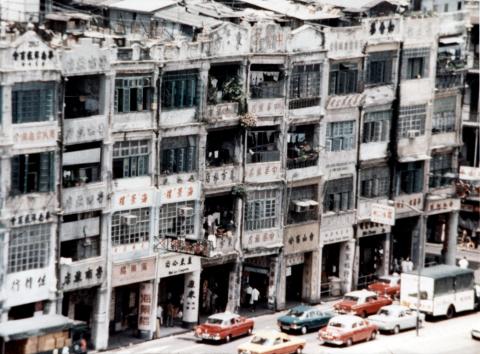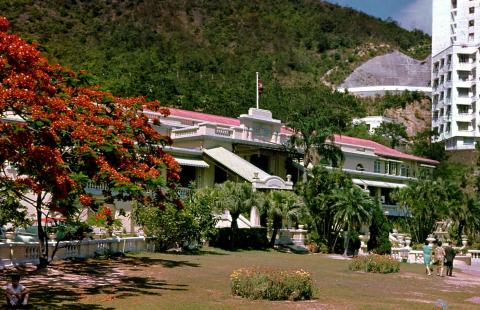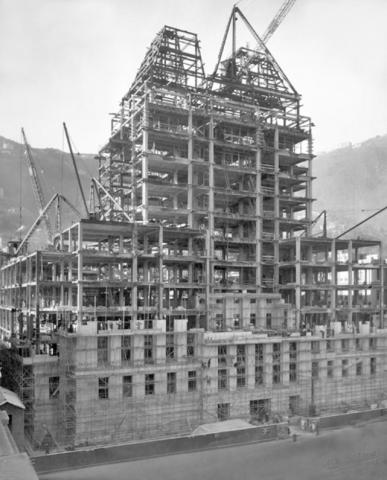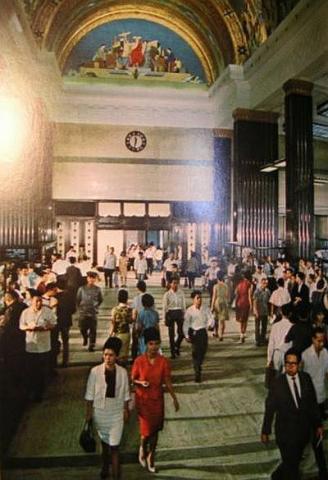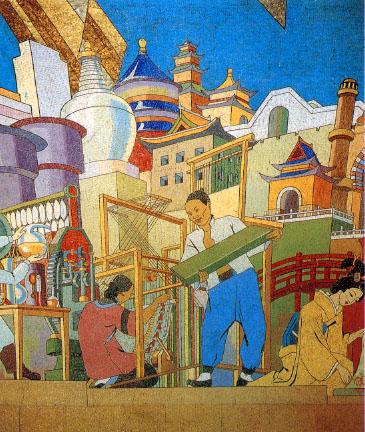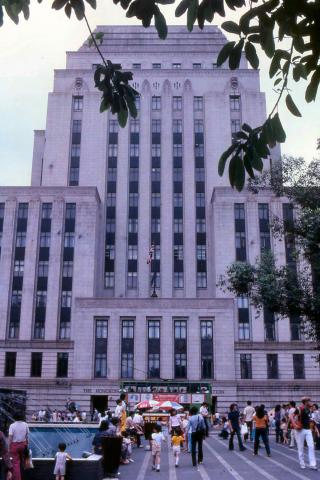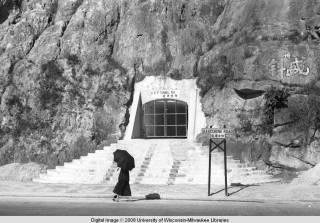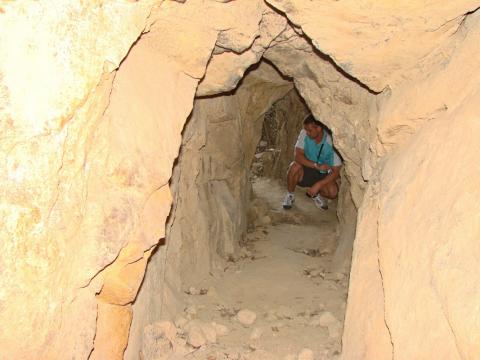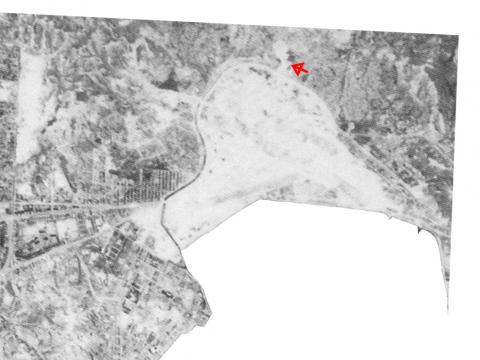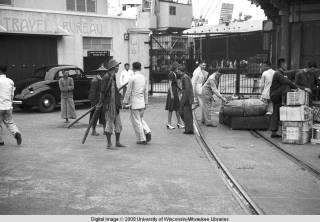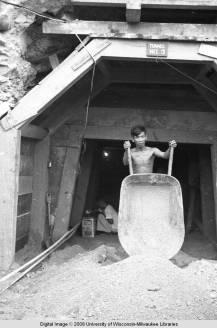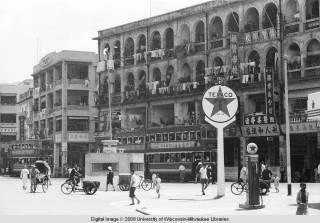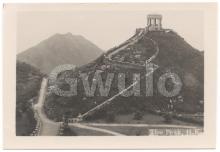Gwulo's 2008 Top Ten
Primary tabs
After seeing Air Raid shelters in the 2006 and 2007 Top Ten lists, they don't make a showing in the list for 2008. You don't escape my fondness for tunnels completely though - see number 4 !
#10 - Martin Booth's 'Golden Boy' : Further information (29,135 views)
In Martin Booth's final book - titled Gweilo or Golden Boy depending on the market - he re-lives his childhood in 1950s Hong Kong. His adventures and the colourful characters he meets are a very enjoyable read, especially for anyone who who has lived in Hong Kong.
This page on Gwulo is a chapter-by-chapter companion to that book, compiled by Phil to 'fill in the blanks for those locations / buildings that are no longer around, or more difficult to pinpoint'.
As a bonus, Martin Booth's wife got in touch to share some of their family photos from that time. eg here's a shot of Martin and his mother on the beach at Repulse Bay:
Next steps:
- Get a copy of the Gweilo / Golden Boy book
- Read it together with Martin Booth's 'Golden Boy' : Further information
- Bonus: Visit Phil's website, Hong Kong (& Macau) Film Stuff. He has built up a huge list of foreign / overseas movies made / set in Hong Kong. Then he shows screen shots from each movie, and carefully identifies their locations.
#9 - Chapter 6 : Dens, ducks, and dives (29,996 views)
The page talking about Chapter 6 of Booth's book also makes the Top Ten. Chapter 6 covers some of the places in Kowloon he visited, and an outing by car around the New Territories. Phil has linked to the pages on Gwulo that describe the places, with a map, notes, and photos for each one.
Booth also describes the decorations he saw in 1953, when Hong Kong was celebrating the coronation of Queen Elizabeth II. Several readers followed up by sending in photos from that time.
Read more about Chapter 6 : Dens, ducks, and dives.
#8 - Hong Kong Shop Houses (30,827 views)
This was another project started by Phil, to document all the remaining Shop Houses in Hong Kong. Shop Houses are the buildings that extend out over the pavement, usually with shops on the ground floor and accommodation above.
The photo above shows there were still plenty of them around in the 1960s, but re-development means that few remain today.
If you click through to the Shop Houses page and scroll down you'll see a map of Shop Houses. Thomas takes the credit for having recorded most of them. Also note that several markers are coloured red. Those show shop houses that have been demolished since the page was compiled in 2008.
Read more about Hong Kong Shop Houses.
#7 - How to: upload your photos to Gwulo (basic) (32,525 views)
This page is a short guide to help you upload a photo to the Gwulo website.
Photos on Gwulo.com fall into two main groups:
- Copies of your old photos. The three photos above from the 1950s & 60s are good examples.
- Modern photos of old things. eg if you check the pages for the Shop Houses in #8 above, you'll find some don't have any photos. If you visited the Shop House, took a photo and uploaded it to Gwulo, we'd have a record of it before it disappears.
If you'd like to upload a photo for other readers to enjoy, please follow the instructions - How to: upload your photos to Gwulo (basic).
#6 - The Repulse Bay Hotel [1920-1982] (35,228 views)
Numbers 5 and 6 are both pages about buildings. I'm surprised to see buildings being so popular, but these are two of Hong Kong's best-known vanished buildings.
#6 first - a page for the old hotel at Repulse Bay.
Read more about The Repulse Bay Hotel [1920-1982].
#5 - HSBC Headquarters Building (3rd generation) [1935-1984] (40,866 views)
#5 is the page for the previous generation of the HSBC Headquarters building. The main page has notes about the bank, and if you click on the Photos tab you'll see well over 100 photos showing the building from the 1930s through to the 1980s.
Read more about HSBC Headquarters Building (3rd generation) [1935-1984].
#4 - Japanese wartime tunnels (71,313 views)
After satisfying my interest in the Air Raid Precaution (ARP) tunnels dug by the British, I turned to the tunnels that the Japanese dug during their occupation of Hong Kong.
The two sets of tunnels were very different. The British ARP tunnels were:
- wide and lined with concrete
- dug in hillsides in the urban areas
- meant for civilians to take shelter in during air raids
The Japanese tunnels were:
- mostly only large enough for one person to move through at a time (though there are wider sections) and just roughly dug out of the rock
- mostly dug in hills away from the urban areas
- meant for Japanese soldiers to shelter in while fighting against the expected invasion of Hong Kong by Allied forces
When I added the page in 2008, I wrote "Here is a map of the tunnels I've seen - only four so far". Looking at that map today, I can see dozens of tunnels have been added by different readers over the years - it's a good example of how Gwulo can help you to gather information.
Read more about Japanese wartime tunnels.
#3 - Kai Tak Airport History (91,993 views)
This article uses old maps and aerial photographs to follow the changing shape of the airport over the years, using the old hangar as a point of reference to link them together. Here's an example - an aerial photo taken by the US Air Force during WW2. The red arrow points to the hangar's location.
Read more about Kai Tak Airport History.
#2 - 1941 Hong Kong : the Harrison Forman Collection of photos (190,447 views)
I remember how excited I was when I first saw these photos. They are exceptionally clear and detailed photographs of Hong Kong taken by the professional photographer Harrison Forman in 1940 and 1941. The photo of the air raid tunnel on Gascoigne Road shown above is one from this collection, and here are a couple more.
Though the thumbnails shown here are small, follow the links to the UWM website to see high-resolution scans that you can zoom in to and that have lots more detail.
Read more about 1941 Hong Kong : the Harrison Forman Collection of photos.
#1 - Page not found (2,241,879 views)
The most-seen page that was added to Gwulo in 2008?
In fact this is the most-seen page of any year, viewed over 2 million times!
It's the short page we show if someone tries to visit a page that doesn't exist. That sounds like the website has some serious problems if we keep sending visitors to non-existent pages? In fact it's a sign of the darker side of the internet - the "person" visiting a non-existent page usually isn't a person at all, instead it's a hacker's computer trying different ways to break into the website.
So, not a very exciting winner for 2008, but it's all part of keeping the website running smoothly.
If you'd like to see more of the top pages from 2008, here's the full list.
